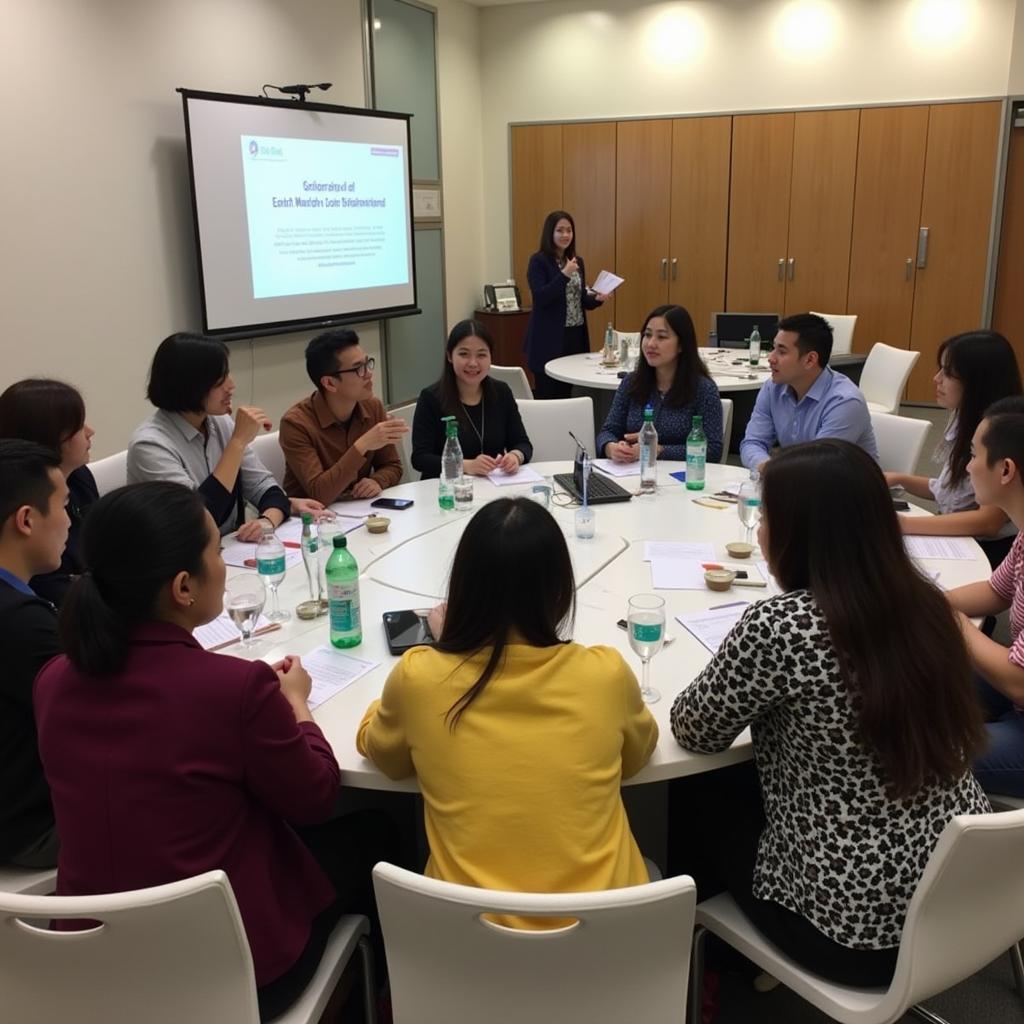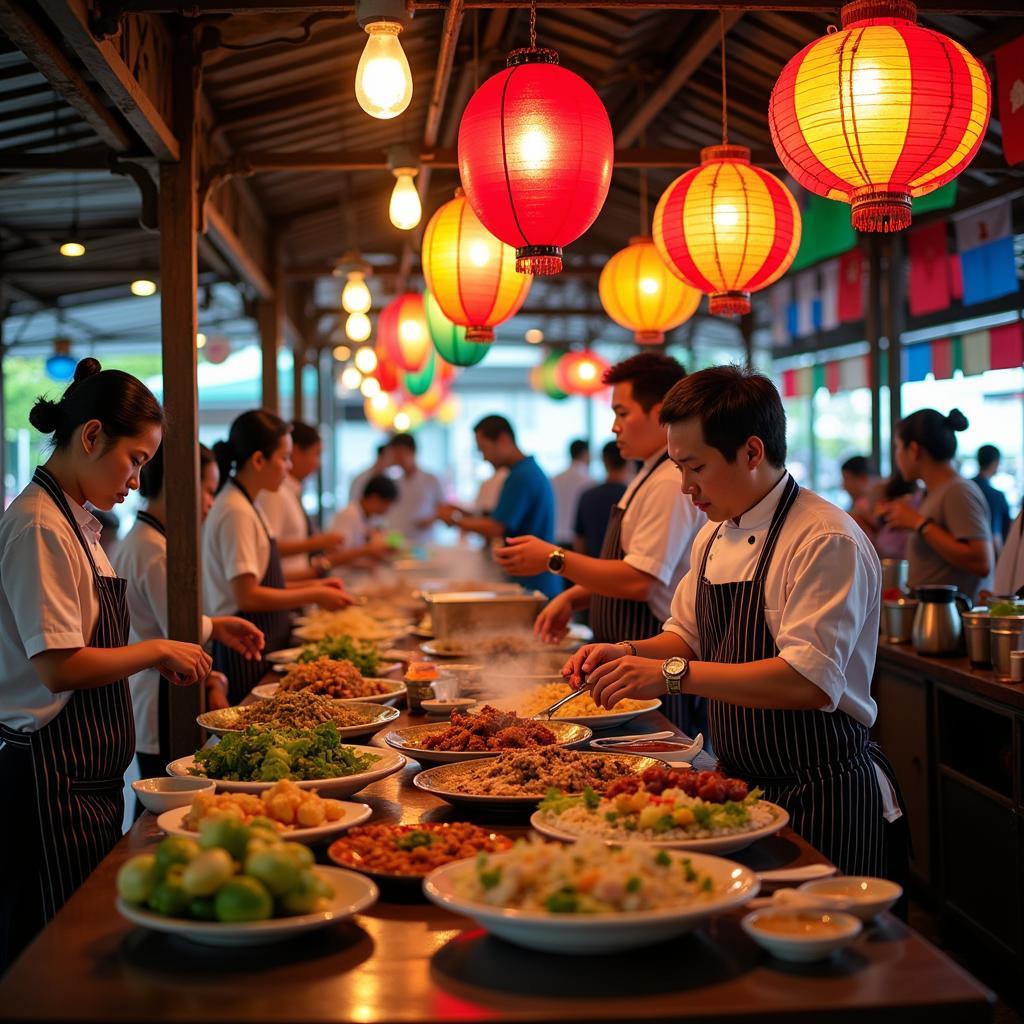The ASEAN Programme Master 2017 was a unique initiative designed to foster regional integration and cooperation within Southeast Asia. While the 2017 iteration has concluded, understanding its impact and legacy can offer valuable insights for those seeking to engage with the region. This article delves into the key aspects of the ASEAN Programme Master 2017, exploring its objectives, impact, and enduring relevance.
Unpacking the ASEAN Programme Master 2017
The ASEAN Programme Master 2017 served as a platform for young professionals and future leaders from ASEAN member states to deepen their understanding of the region’s complexities. This program offered a multidisciplinary approach, covering areas such as economics, politics, culture, and social development.
 Participants of the ASEAN Programme Master 2017
Participants of the ASEAN Programme Master 2017
Key Features and Objectives
The program’s strength lay in its focus on experiential learning and cross-cultural exchange. Participants engaged in:
- Intensive Seminars and Workshops: Led by experts from various fields, these sessions provided in-depth knowledge of critical ASEAN issues.
- Field Visits and Study Tours: Participants gained firsthand exposure to ASEAN institutions and cultural landmarks, fostering a deeper appreciation for the region’s diversity.
- Networking Opportunities: The program facilitated connections between participants, creating a network of future leaders committed to ASEAN’s development.
The ASEAN Programme Master 2017 aimed to:
- Enhance Regional Understanding: It sought to equip participants with a nuanced understanding of ASEAN’s history, culture, and socio-economic landscape.
- Develop Future Leaders: The program aimed to nurture a new generation of leaders equipped with the skills and perspectives to navigate ASEAN’s evolving challenges.
- Promote Regional Cooperation: By fostering cross-cultural dialogue and collaboration, the program contributed to strengthening ties between ASEAN member states.
The Legacy and Relevance of ASEAN Programme Master 2017
Although the 2017 program has ended, its impact continues to resonate. The alumni network, comprising individuals now working in various sectors across Southeast Asia, serves as a testament to the program’s success.
The ASEAN Programme Master 2017 highlights the importance of:
- Investing in Human Capital: Developing future leaders through targeted programs is crucial for ASEAN’s long-term growth and stability.
- Promoting Cross-Cultural Understanding: In an increasingly interconnected world, programs like these are essential for breaking down barriers and fostering greater empathy and cooperation.
- Addressing Transnational Challenges: ASEAN faces complex issues that require collaborative solutions. Programs that equip individuals with the necessary skills and perspectives to tackle these challenges are invaluable.
Conclusion
The ASEAN Programme Master 2017, though a specific initiative, represents a broader commitment to regional integration and development within Southeast Asia. Understanding its structure and objectives provides valuable insights for anyone interested in ASEAN’s past, present, and future. As ASEAN continues to evolve, initiatives that prioritize cross-cultural dialogue, leadership development, and regional cooperation remain as relevant as ever.
FAQs
What were the eligibility criteria for the ASEAN Programme Master 2017?
The program targeted young professionals from ASEAN member states with a proven track record of leadership potential and a strong interest in regional affairs.
Were there any scholarships available for the program?
Yes, several scholarship opportunities were available, funded by various organizations and ASEAN dialogue partners.
How can I find out about similar programs in the future?
Stay updated on opportunities through the official ASEAN website and reputable organizations focused on Southeast Asian affairs.
Need Help?
Contact us:
Phone Number: 0369020373
Email: [email protected]
Address: Thon Ngoc Lien, Hiep Hoa, Bac Giang, Vietnam.
Our customer support team is available 24/7.


